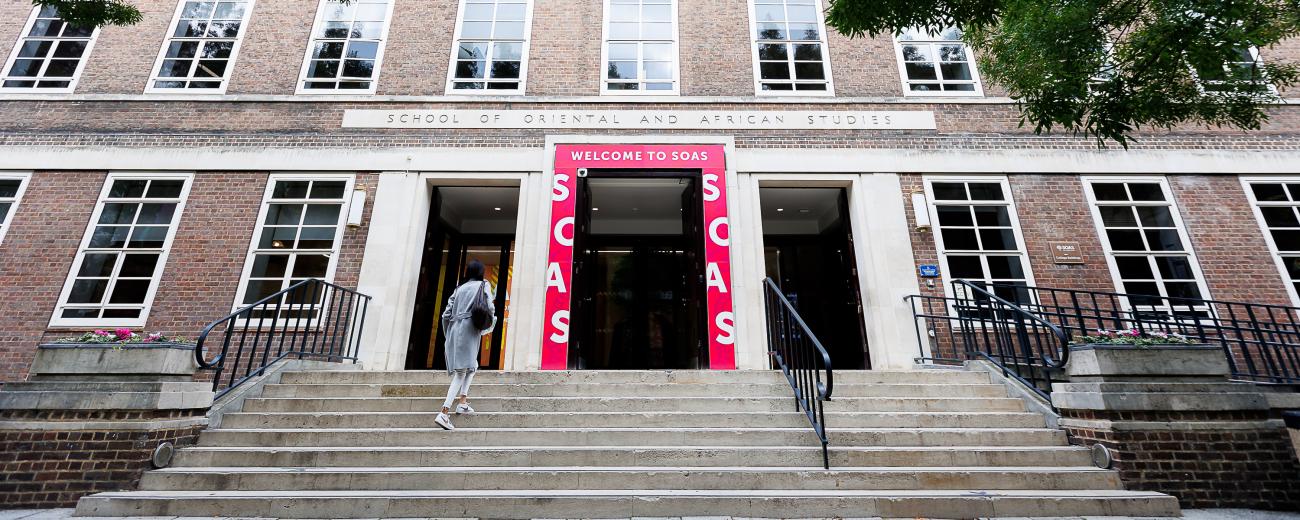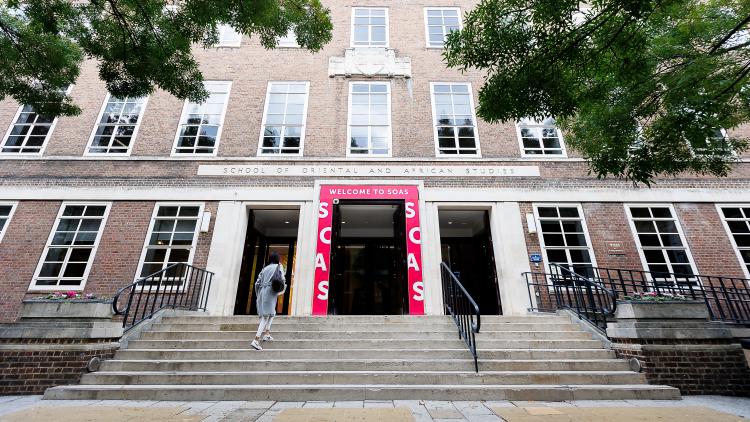
Language Policy Forum 2023

Key information
- Date
- to
- Event type
- Conference
About this event
Programme
This programme is provisional and will be finalised before the conference:
- See the provisional timetable
- See all conference abstracts
Registration and Venue
Registration
There will be two parallel sessions, both held at SOAS University of London. One of these parallel sessions will also be available online, for a discounted fee.
In-person attendance:
- Employed full-time in the global North*, BAAL non-member: £120 (join BAAL)
- Employed full-time in the global North*, BAAL member: £100
- Non-BAAL fractional/part-time worker; non-BAAL student in the global North*, with conference funding: £60
- BAAL fractional/part-time worker; BAAL student in the global North, with conference funding: £50
- Retired, unwaged, student without conference funding, and people based in the global South*: £30
Online attendance:
- Employed full-time in the global North*: £40
- Fractional, retired, unwaged, students, and people based in the global South*: £20
- For a list of countries in the global South and North, check the OWSD or World Population Review.
Register
- Register for in-person attendance (In-person attendance is cheaper if you're a member of BAAL
- Register for online attendance (A webinar link will be sent to you before the conference)
Please email lpf2023@soas.ac.uk if you require British Sign Language interpretation, or if you have any other requirements or queries.
- Please can presenters confirm their attendance by registering by 30 April, as we have a large number of reserve papers.
- Please also register by 30 April if you require British Sign Language interpretation, so that we can make adequate arrangements.
Venue
- SOAS Main Building, Thornhaugh Street, Russell Square, London WC1H 0XG, UK.
All rooms (Khamran Djam Lecture Theatre (G1), G3 and RG01) are on the ground floor of SOAS Main Building and wheelchair-accessible.
See our interactive map of how to find SOAS.
- Nearest Tube stations: Russell Square (direct line from Heathrow Airport), Goodge Street, Euston, Euston Square, Tottenham Court Road.
Conference Theme: Decolonising Language Policy
Language policy at the national macro level is generally based on ‘One nation – one language’ ideologies that were promulgated and reinforced in Europe during the periods of ‘Enlightenment’ (mainly 18th century) and Empires (19th century and onwards). Colonial languages were promoted as part of a ‘civilisation narrative’ (Tricoire 2017) and linguistic hegemonies became entrenched.
Colonial and newly independent nation-state boundaries were drawn along arbitrary lines, ignoring ethnolinguistic practices at grassroots level. Despite most countries of the globe being multi-ethnic and multilingual, colonial and monolingual models of language policy were reproduced, as well as ideologies such as the myth of ‘multilingualism = divisiveness’ (Bamgboṣe 2011). Inevitably in such a model, language issues become political issues, with implications for linguistic human rights, especially when minorities are repressed in the name of national unity.
The idea of language can be used by policy makers and everyday people to foster the identity of a state, nation or ethnic group, and may become (or be appropriated as) a symbol of nationhood / freedom/ independence / identity/ autonomy. When vernacular or Indigenous languages are promoted, it is often according to a colonialist model: standardisation, elevation of literate norms, devalorisation of variability (Schieffelin et al. 1998).
Moreover, in Linguistics, the notion of ‘language’ as a bounded system also developed during these periods, leading to the identification and description of ‘languages’ in colonised countries that reflected these ideologies. The classification and naming of ‘languages’ reflected arbitrary locations of colonial or missionary bases, more than existing multilingual practices (e.g. Mühlhäusler 1996; Makoni and Pennycook 2006). Linguistic descriptions were predicated on theoretical models extrapolated from Indo-European languages.
More recently, documentary linguists have sought to identify ‘pre-contact’ ‘ancestral codes’ (Childs et al. 2014) that may again reflect received notions of bounded languages and ‘authenticity’, rather than linguistic ecosystems and multilingual or translanguaging practices.
- Please visit the Language Policy Forum Conference 2023 site to find out more
Plenary speakers
- Professor Justyna Olko, Faculty of Artes Liberales, University of Warsaw (Poland) - see abstract
- Dr Hannah Gibson, University of Essex, UK - see abstract
Papers and proposals
The conference organisers take a broad interpretation of language policy, based on the latest directions within language policy research. Papers are invited that examine language policies, practices and ideologies at all levels: international, national, regional, societal, institutional, group, locality, family, individual. Examples might include, among others:
- The impact of colonial thinking on language policies at all levels of society
- Evaluating examples of language policy
- Alternative frameworks for language policies
- Language practices, management and beliefs
- Language ideologies and attitudes
- Practised language policy and language policing
- Issues with implementation of language policies
- The impact of colonial thinking on the field of Linguistics, language documentation, etc.
- Colonisation of research: methods, writing, ethics etc.
We also invite proposals for panel discussions on these and related topics. Please send anonymised abstracts of 200 words to lpf2023@soas.ac.uk by 25 March 2023. You will be informed of the outcome by 15 April.
Any queries can also be sent to this email address.
The Language Policy Forum is the bi-annual conference of the Language Policy Special Interest Group of the British Association of Applied Linguistics.

